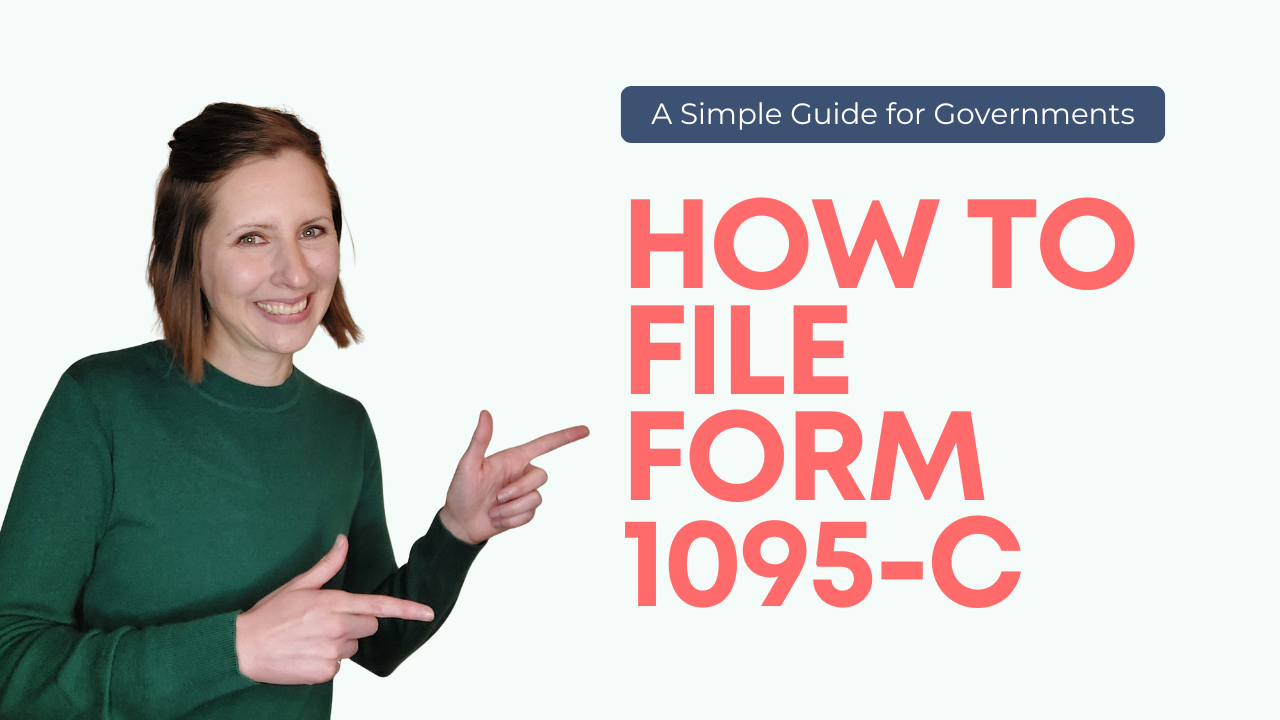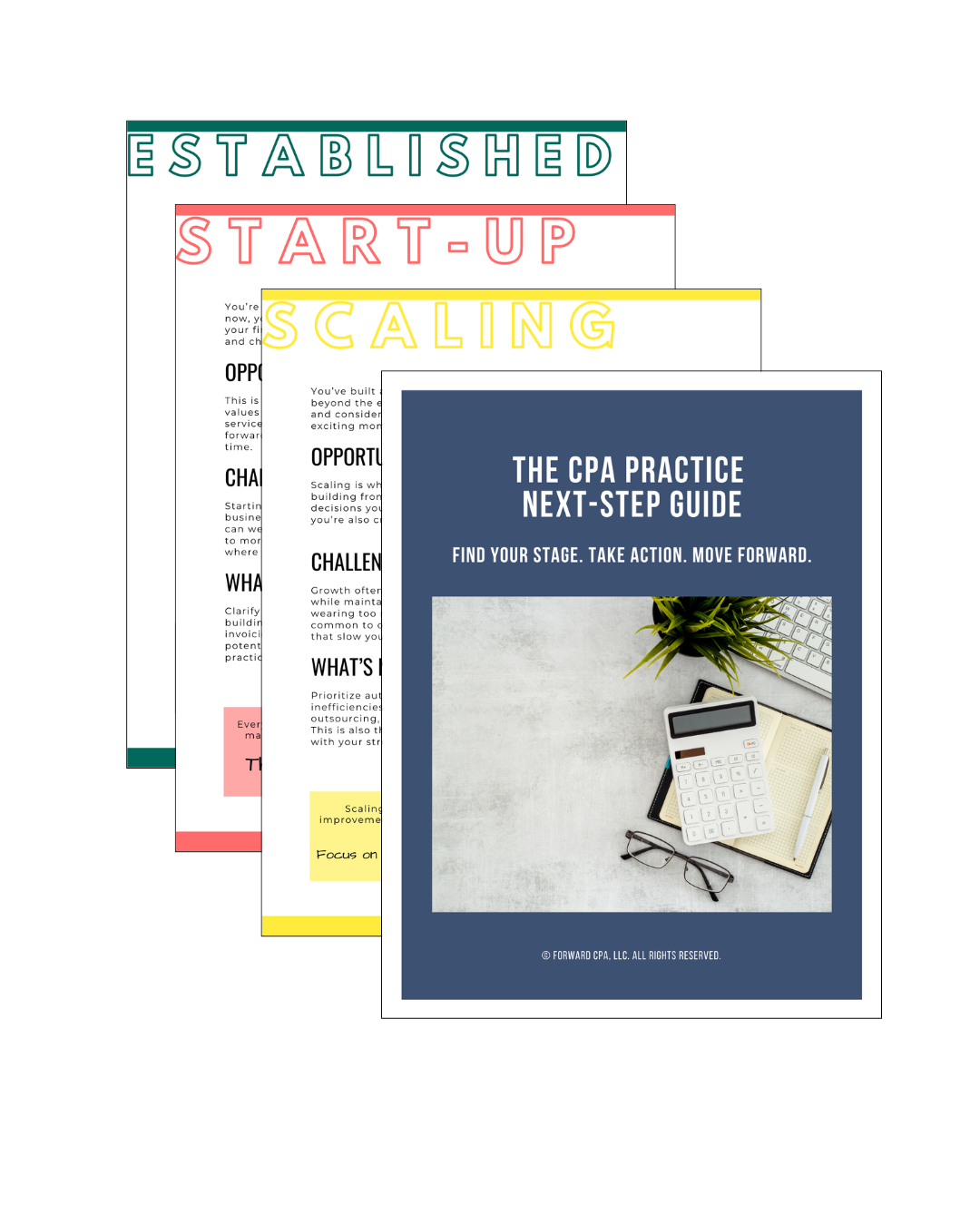How to Beat Procrastination and Stay on Top of Deadlines
May 15, 2025
Procrastination and deadlines - the ultimate tug-of-war for CPAs. You know the deadlines are firm. You know your clients are counting on you. And yet...you find yourself pushing tasks off until the last minute, scrambling through long nights to catch up.
If this sounds familiar, you're not alone. Procrastination thrives in high-pressure environments, and CPA firms are prime territory. But it doesn't have to run your practice - or your life.
The key is to understand why you're procrastinating and put systems in place that make it easier to take action immediately. Here's how to beat procrastination and stay on top of deadlines - even during busy season.
#1 Understand Why You Procrastinate
Procrastination isn’t laziness—it’s avoidance. You’re not avoiding the work; you’re avoiding the feelings that come with the work:
-
Overwhelm: The project feels too big to start.
-
Perfectionism: You fear it won’t be “good enough” if you start now.
-
Unclear Next Steps: You’re not sure what to do first, so you do nothing.
-
No Deadline Urgency: Without pressure, there’s no motivation.
Quick Fix: Break down large tasks and give each one its own mini-deadline. Procrastination thrives on vagueness—kill it with clarity.
#2 Use the "2-Minute Rule" to Start Immediately
The hardest part of any task is getting started. The 2-Minute Rule, from David Allen’s Getting Things Done, is a simple trick to overcome that inertia:
If a task will take less than two minutes, do it immediately.
For larger tasks: Just commit to two minutes. Often, you’ll keep going. Starting reduces resistance.
Example for CPAs:
-
Open the trial balance and review the first account.
-
Draft the first sentence of the management representation letter.
-
Gather one document from the client portal.
Two minutes can become twenty. Twenty can become completion.
#3 Time Block Deadlines Before They're Urgent
Deadlines are dangerous because they encourage last-minute rushes. Instead of working toward deadlines, schedule time blocks to complete tasks well before they hit.
How to Time Block Effectively:
-
Work Backward from the Deadline: Set milestones for each phase (e.g., Client Docs Due, Fieldwork, Review).
-
Theme Your Days: Mondays for client check-ins, Wednesdays for audit fieldwork, Fridays for financial statement reviews.
-
Add Buffers: Plan to finish a day or two early for unexpected delays.
#4 Conquer Overwhelm with Task Chunking
When a task feels massive, your brain says, “Nope.” That’s overwhelm—the fuel for procrastination.
The solution? Task chunking. Break projects into bite-sized pieces that your brain can handle.
Example: Audit Engagement Task Chunking
✅ Request client documents (Day 1)
✅ Review cash and receivables (Day 2)
✅ Complete preliminary analytical procedures (Day 3)
✅ Draft financial statements (Day 4)
✅ Submit for review (Day 5)
You can’t finish the audit in one step. But you can finish "Review cash and receivables" today.
#5 Beat Perfectionism with the "Ugly First Draft" Method
Perfectionism is procrastination in disguise. It whispers, “Don’t start until you can do it perfectly.”
The antidote is the Ugly First Draft method. Commit to:
-
Getting something—anything—on the page first.
-
Accepting that the first draft isn’t the final draft.
-
Polishing later.
CPA Example:
Instead of waiting for “the perfect phrasing,” quickly draft your audit findings. You can edit them during review. Starting rough is better than never starting at all.
#6 Use the Pomodoro Technique to Stay Focused
The Pomodoro Technique is a time management method that prevents burnout and boosts focus.
How It Works:
-
Work for 25 minutes—no distractions.
-
Take a 5-minute break.
-
Repeat for four cycles, then take a longer break (15-30 minutes).
Why It Works for CPAs:
-
It stops you from waiting for “the perfect time” to start.
-
Short sessions make large projects feel manageable.
-
The breaks prevent decision fatigue—critical during busy seasons.
Pro Tip: Use timers like BeFocused or Pomodone to automate this system.
#7 Eliminate Time-Wasting Triggers
You can’t fight procrastination if distractions are everywhere. Create an environment that reduces friction and eliminates temptation:
Common CPA Distractions (and How to Fix Them):
❌ Email Overload: Schedule email check-ins (e.g., 10 AM, 2 PM) instead of responding instantly.
❌ Phone Notifications: Use “Do Not Disturb” mode during work blocks.
❌ Cluttered Workspace: Keep only essential tools on your desk—laptop, notepad, calculator.
Pro Tip: Use website blockers like Freedom or Cold Turkey during focus time.
#8 Build Accountability with Self-Imposed Deadlines
Deadlines motivate action. But if clients or partners aren’t imposing them, create your own.
How to Create Accountability:
-
Set internal deadlines days before the actual deadline.
-
Share your progress with a colleague or accountability partner.
-
Announce your deadlines to your team—external pressure boosts commitment.
#9 Reward Progress, Not Just Completion
One reason procrastination wins? You’re only rewarding yourself when you finish something big. Break the cycle by celebrating small wins.
Examples of Progress-Based Rewards:
✅ Finish a section of the audit → Take a 10-minute walk.
✅ Draft the client letter → Enjoy your favorite coffee.
✅ Hit your daily time-block goals → End the day 30 minutes early.
Why It Works: Rewards trigger a dopamine release, training your brain to enjoy productivity.
#10 Build Productive Habits to Prevent Future Procrastination
The best way to beat procrastination long-term is to build habits that make starting easy and automatic.
Key Productive Habits for CPAs:
-
Daily Highlight: Start each morning by identifying the one task that matters most today.
-
Work Rituals: Begin your day with a consistent pattern (e.g., Coffee → Calendar Check → First Pomodoro).
-
Weekly Reviews: Every Friday, review your week and plan your next.
Build Momentum, Beat Procrastination, and Own Your Deadlines
Procrastination feels unbeatable—until you realize it’s a pattern, not a personality trait. By breaking large tasks into chunks, starting with small actions, and removing distractions, you’ll build momentum that carries you past the urge to delay.
Key Takeaways to Beat Procrastination and Stay on Top of Deadlines:
✔ Break tasks into micro-steps to kill overwhelm.
✔ Use the 2-Minute Rule to conquer inertia.
✔ Time block and theme your days for predictable progress.
✔ Start with an “Ugly First Draft” to fight perfectionism.
✔ Use Pomodoro timers to focus in bursts.
✔ Eliminate distractions and reduce friction.
✔ Create self-imposed deadlines to build urgency.
✔ Reward progress—small wins fuel momentum.
✔ Build habits that make starting easy and automatic.
Which strategy will you try first? Don’t wait—pick one and start today. Your future self (and your clients) will thank you.
Your Next Step Forward
Join the newsletter designed to help CPAs take the next best step in building a practice they love, with practical insights, game-changing tools, and quick wins in every email.
We hate SPAM. We will never sell your information, for any reason.




